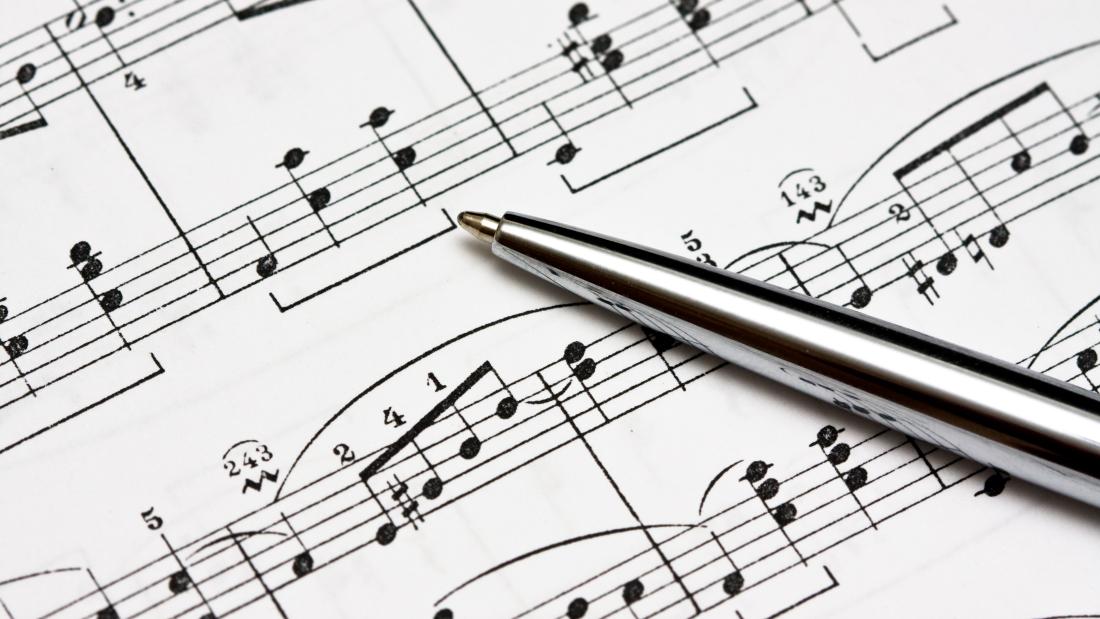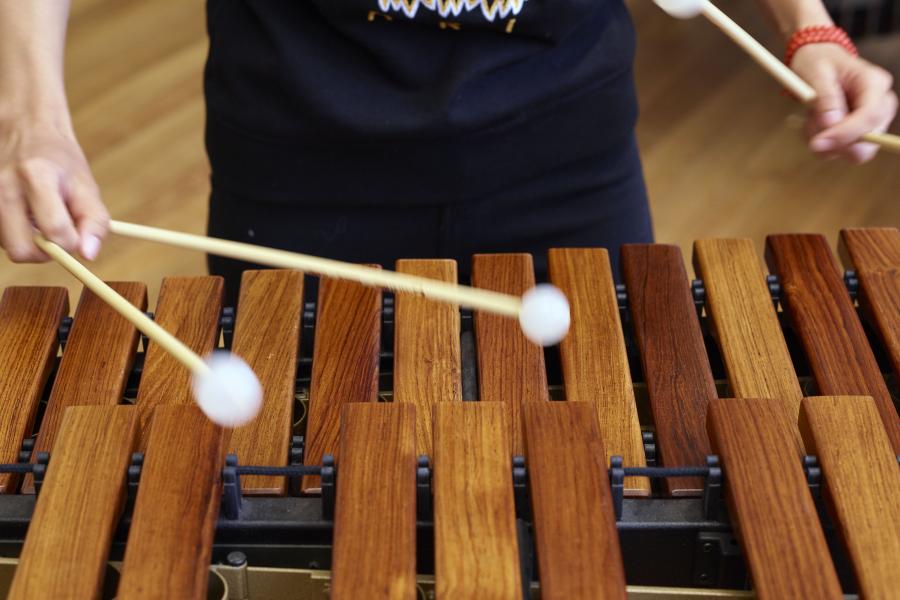About This Course
The Music Education MA allows you to develop a deeper understanding of the theory and practice of teaching music to others. You will have a strong grasp of how music and education are interrelated, involving practical experience within a robust theoretical framework.
You will also have advanced skills within music and education as separate disciplines. You will be knowledgeable and skilled as musicologists, composers, performers and/or teachers, and will have honed personal and professional skills valued in the education sector, including skills in planning, course design, and management. Musical knowledge may involve a range of styles of repertoires, a range of methodologies for studying music, and experience of the benevolent roles of music in educational, community and healthcare settings. You will develop a focus on critical enquiry and creative thinking around music education. You will become reflective practitioners, with excellent leadership skills. You will consider music education in the round, focussing not on styles of repertoire but on musical knowledge and the ability to communicate effectively about music.
The programme is studied in a multi-disciplinary environment, involving interactions with musicologists, composers, performers, and professional educators. You will understand the mutual relationship between theory and practice, and may additionally have worked with scholars and practitioners in other fields, such as linguistics, journalists, and stage performers.
The course provides you with an excellent preparation for further study as postgraduate researchers (including practice-led research), as well as honing your skills and extending your knowledge for a successful career in music education. The high-level key skills gained (including communication and critical thinking) are also eminently transferable to other professions.
Why choose Bangor University for this course?
- A broad curriculum that develops your theoretical understanding of music pedagogy while also building your skills and experience through practical application.
- A contemporary course that brings fresh perspectives on music education, focussed on employability.
- Taught by experienced staff in education and music education.
- A flexible programme that allows you to explore your own areas of interest within Music Education.
- A flexible range of assessment methods designed to develop a wide range of highly transferrable skills.
Course Content
What will you study on this course?
The MA Music Education offers modules that explore the fundamentals of music education from a range of perspectives and within a broad sphere of contexts, including performance, history and theory.
Your first semester builds knowledge of essential principles, concepts and tools for working as a music educator in the UK and internationally. During the second semester you will also develop your skills and experience in putting knowledge into practice, through collaborative peer projects (facilitated by staff) and engagement with current teaching practices. The second semester also prepares you for the summer research project, developing your research skills and formalising your research proposal (including ethical considerations). The programme culminates with the summer research project, in which you work on the project designed in semester 2, under the supervision of an experienced member of staff.
On this course students will complete 180 credits, comprising 120 credits taught modules and the research project (60 credits). During semesters 1 and 2 students will take taught modules in music education curriculum development, music education theories and practices, advanced research methods as well as a module in either assessment in education or educational leadership and management. You will also take a contemporary music education project module and select a further option from either a Placement module or Teaching Music Today. Following completion of the taught, students will progress to the research project, which runs across the summer.
The research project allows students to design and deliver an extended piece of research into any aspect of music education. The project will be developed with academic supervision and take a variety of forms, including (but not limited to) a dissertation, a portfolio of education materials with commentary, or a series of guided demonstrations with commentary. The project proposal submitted as part of the advanced research methods modules.
How will you learn on this course?
You will take part in lectures, seminars and workshops, and tutorials, aimed at developing your theoretical knowledge and equipping you with the skills to implement this knowledge in practice. Typically you will be given tasks to complete ahead of classes; student participation is a vital aspect of postgraduate teaching and learning. You will also take part in external activities, e.g. school placement and community education project.
Your assessments – formative and summative – will be varied, including presentations, reports, group projects, essays and teaching demonstrations. You will also have flexibility in your research project, allowing a wide range of submission formats (e.g. teaching tools portfolio) alongside a traditional dissertation.
Modules for the current academic year
Module listings are for guide purposes only and are subject to change. Find out what our students are currently studying on the Music Education MA Modules page.
Course content is for guidance purposes only and may be subject to change.
Entry Requirements
A first degree in Music at 2.ii standard or higher (or equivalent) is normally required. First degrees in other, music-related areas, will be considered on a case-by-case basis.
Candidates with a PGCE Music are warmly encouraged to apply. Applicants with equivalent professional qualifications and/or relevant practical experience and applications from working professionals with non-graduate qualifications will be considered on an individual basis.
International applicants whose first language is not English or Welsh are normally required to provide evidence of English language proficiency. Minimum English language requirements are IELTS 6.0 (with no element below 5.5), or equivalent.
Please also note the following additional conditions*:
- Applicant self-declaration form.
- A satisfactory criminal records check from your county of residence.
* Required for all applicants prior to acceptance on the course. Successful candidates will be contacted by our DBS team with guidance on how to apply following offer of a place. Successful candidates are also required to apply for an Enhanced Disclosure from the Disclosure and Barring Service (DBS) including a check of the children’s barred list. Information explaining how to obtain the DBS check will be sent to you before the start of the course.
Careers
This programme is designed to prepare students for a career in music education by providing a thorough foundation in theoretical and conceptual frameworks as well as providing you with many opportunities to put such ideas into practice, through demonstration and observation. Employability prospects are excellent, with a wide range of career options available in the fields of music and education. The programme is appropriate for students already working in music education, and who wish to develop new skills, knowledge and ideas, and to advance their careers. The programme is also appropriate for those intending to teach music privately. It will complement a PGCE for those undertaking a career in school-teaching. Other opportunities for employment exist within arts organisations (e.g. as education officers for orchestras and opera companies), the media, journalism, publishing, librarianship and information management, and various web-based industries.
For international students, completion of this programme may help students from music backgrounds to secure jobs in primary or secondary schools. On return to their home country, international students may also become self-employed, offering private music education. In many countries (e.g., China), childhood music education (4-12 years old) is in high demand, and this programme will help graduates to fill that gap.
Transferable skills gained from studying music and education at Master’s level fit graduates for entry into the civil service, industry, and other professions.
*Please note: This course does not lead to a teaching qualification upon graduation.



